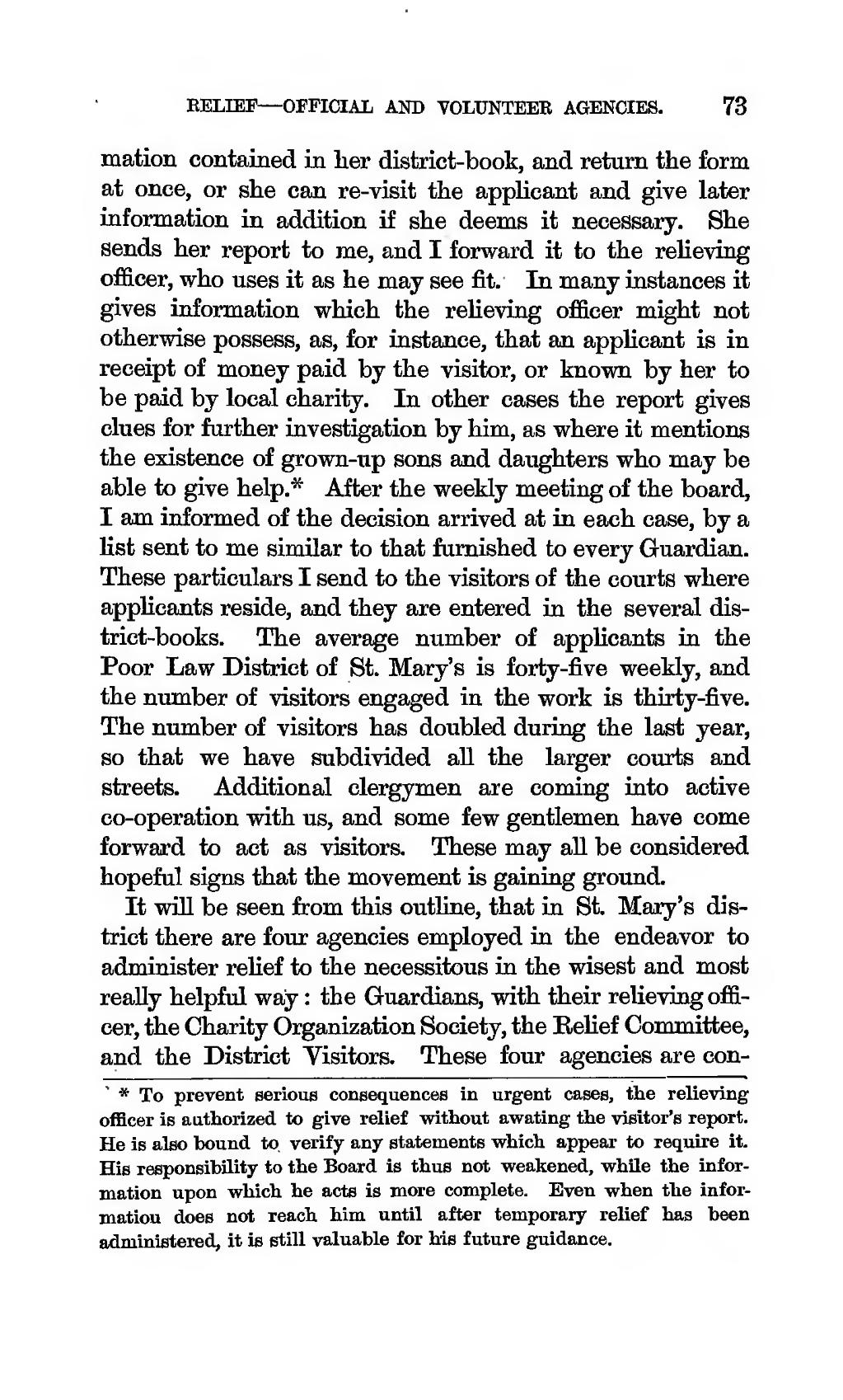mation contained in her district-book, and return the form at once, or she can re-visit the applicant and give later information in addition if she deems it necessary. She sends her report to me, and I forward it to the relieving officer, who uses it as he may see fit. In many instances it gives information which the relieving officer might not otherwise possess, as, for instance, that an applicant is in receipt of money paid by the visitor, or known by her to be paid by local charity. In other cases the report gives clues for further investigation by him, as where it mentions the existence of grown-up sons and daughters who may be able to give help.[1] After the weekly meeting of the board, I am informed of the decision arrived at in each case, by a list sent to me similar to that furnished to every Guardian. These particulars I send to the visitors of the courts where applicants reside, and they are entered in the several district-books. The average number of applicants in the Poor Law District of St. Mary's is forty-five weekly, and the number of visitors engaged in the work is thirty-five. The number of visitors has doubled during the last year, so that we have subdivided all the larger courts and streets. Additional clergymen are coming into active co-operation with us, and some few gentlemen have come forward to act as visitors. These may all be considered hopeful signs that the movement is gaining ground.
It will be seen from this outline, that in St. Mary's district there are four agencies employed in the endeavor to administer relief to the necessitous in the wisest and most really helpful way: the Guardians, with their relieving officer, the Charity Organization Society, the Relief Committee, and the District Visitors. These four agencies are con-
- ↑ To prevent serious consequences in urgent cases, the relieving officer is authorized to give relief without awating the visitor's report. He is also bound to verify any statements which appear to require it. His responsibility to the Board is thus not weakened, while the information upon which he acts is more complete. Even when the information does not reach him until after temporary relief has been administered, it is still valuable for his future guidance.
